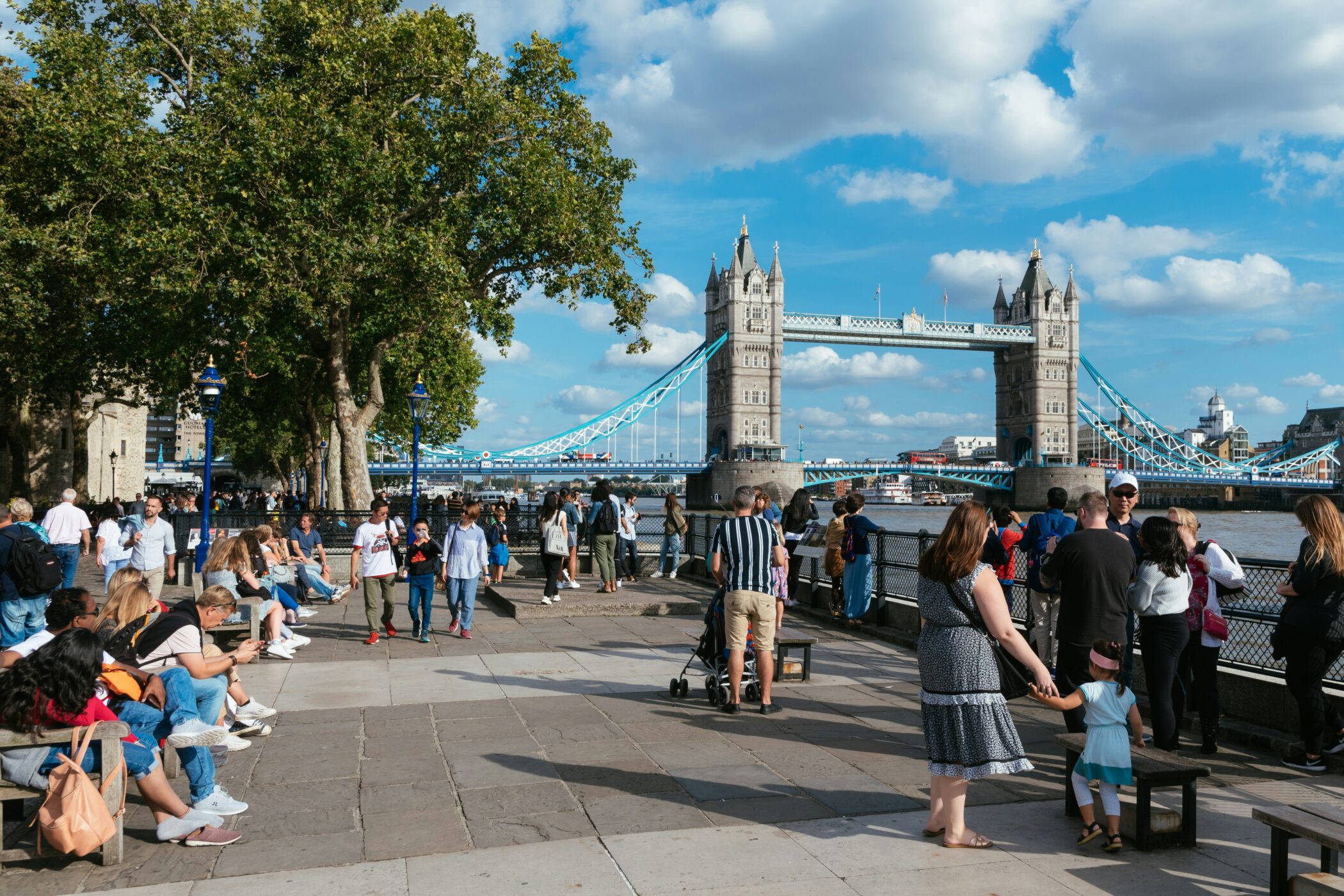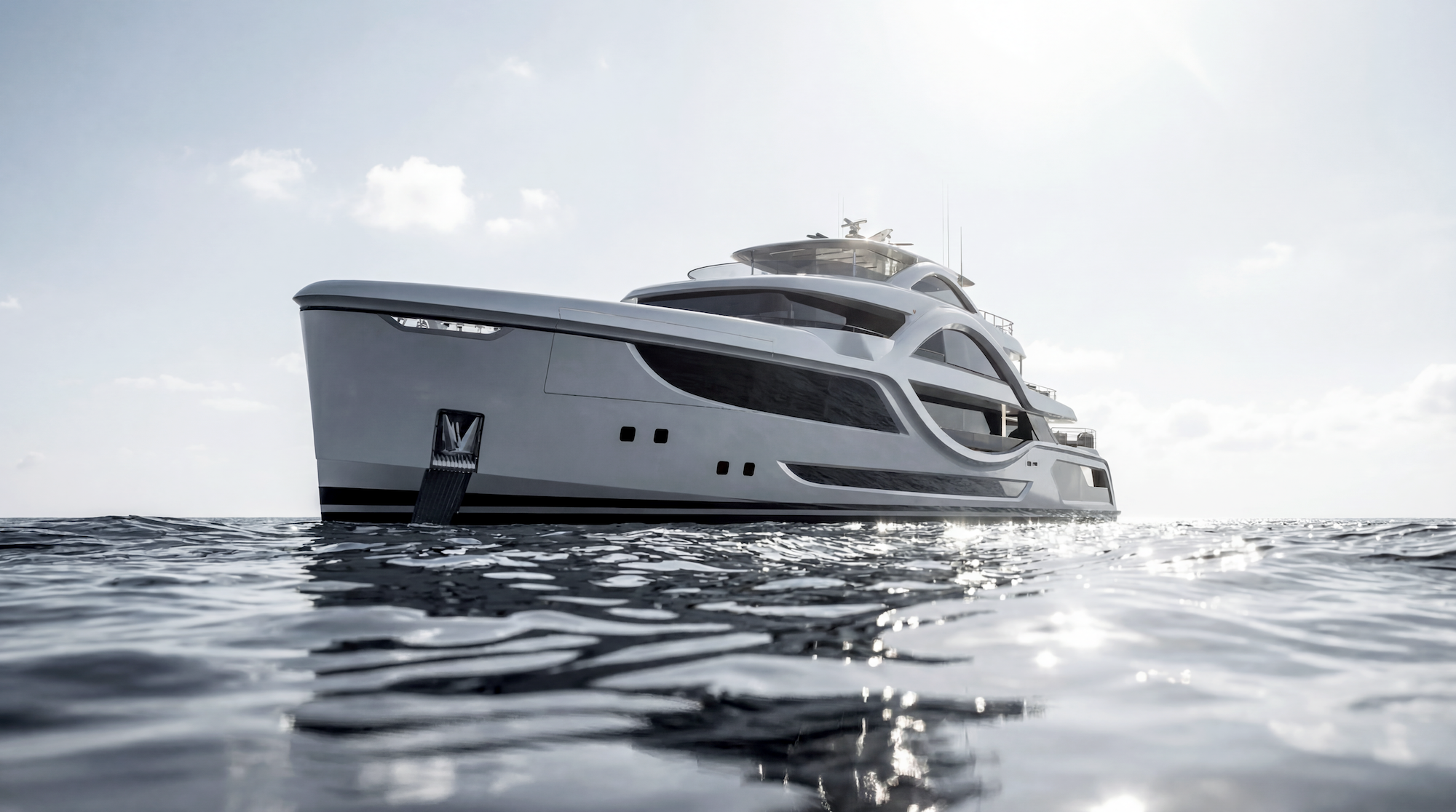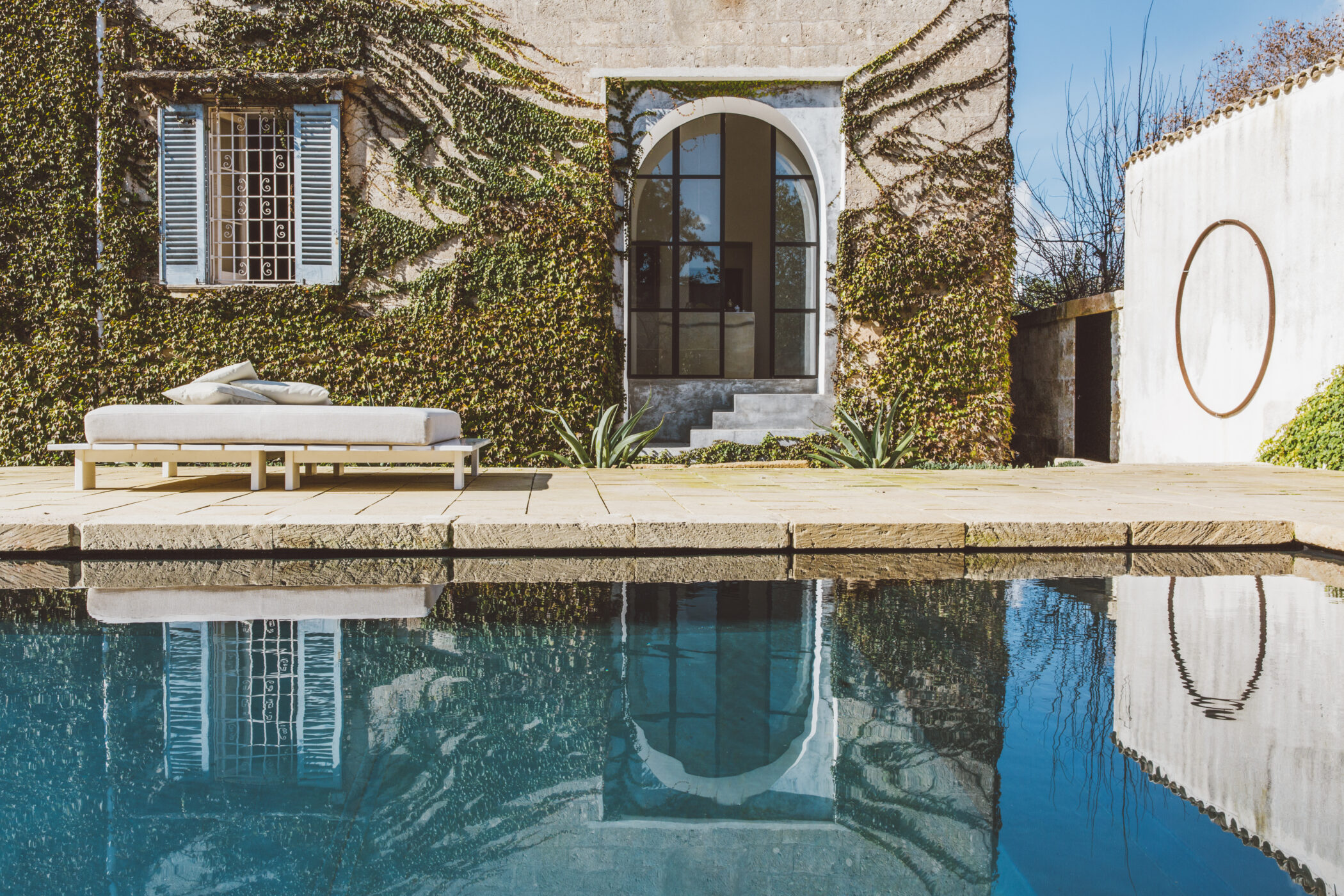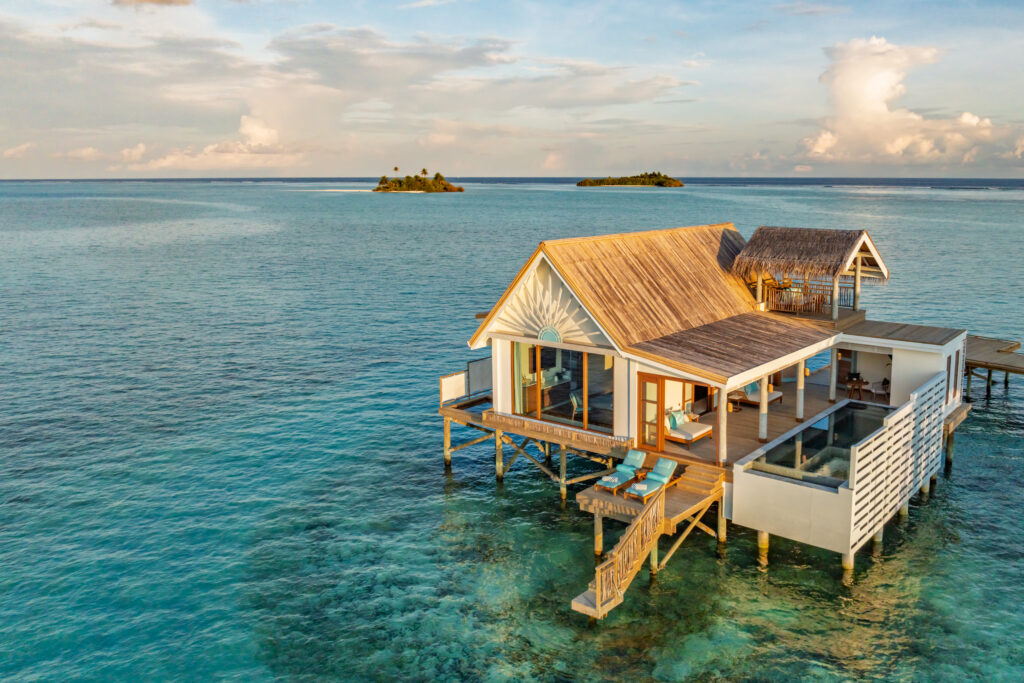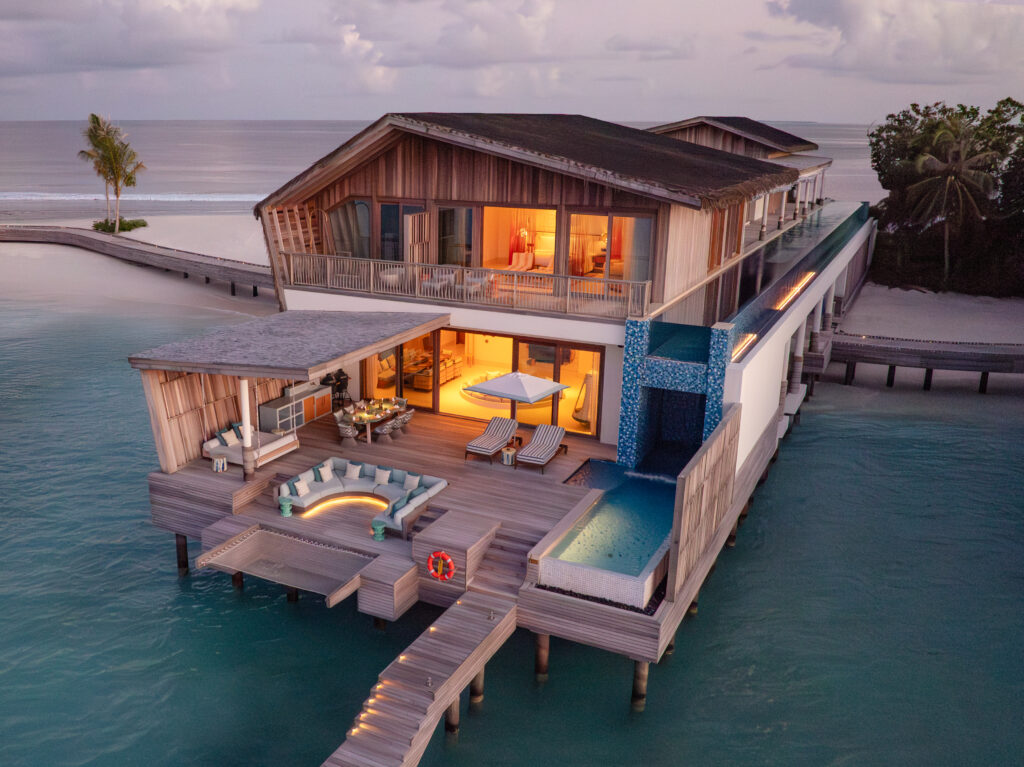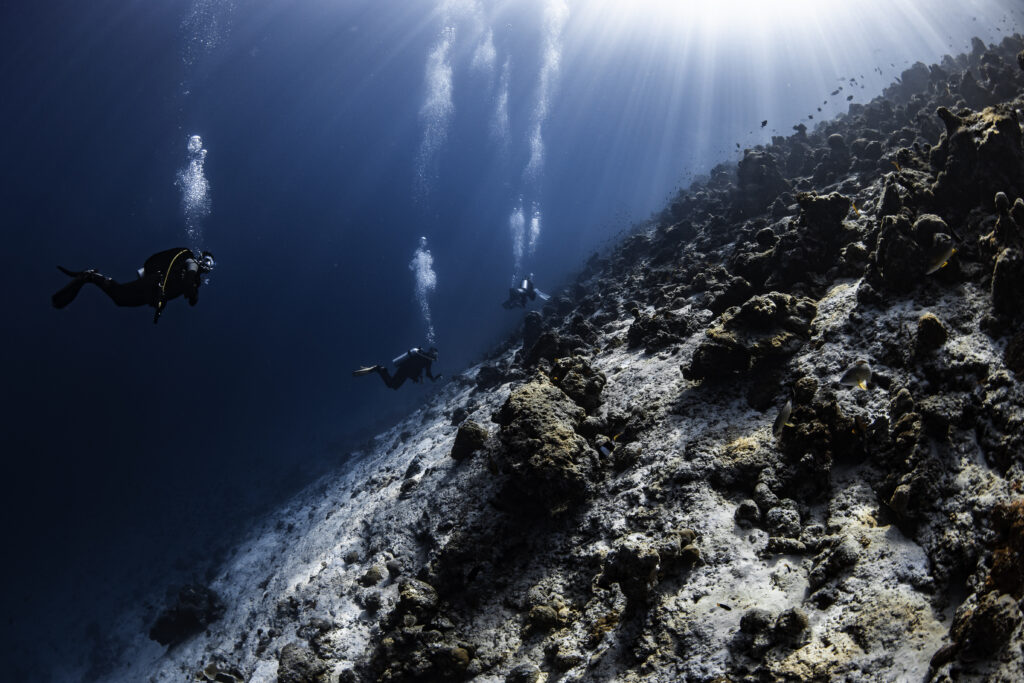Maldives' Fari Islands en route to net-zero
Fari Islands is pioneering new sustainability standards in tropical tourism and charging towards its net-zero goal with the installation of floating solar panels in the ocean. Olivia Palamountain reports
Fari Islands, a resort archipelago that houses the Ritz-Carlton Maldives and Patina Maldives, is tripling its solar capacity through a partnership with marine solar specialist Swimsol. The expansion will enable the four-island destination to meet 50% of its total energy requirements from renewable sources.
The project represents one of the largest solar installations in the region and includes the archipelago's first ocean-based floating solar system. Comprising 40 platforms and 2,160 photovoltaic panels surrounding the islands' staff campus, the marine installation alone will provide 24% of the destination's energy needs while adding 1,037 kWp to the grid.
Once fully implemented, the solar systems have the potential to supply up to 50 percent of the islands’ energy demand on sunny days, with overall solar penetration expected to be slightly below 50 percent when accounting for varying weather conditions.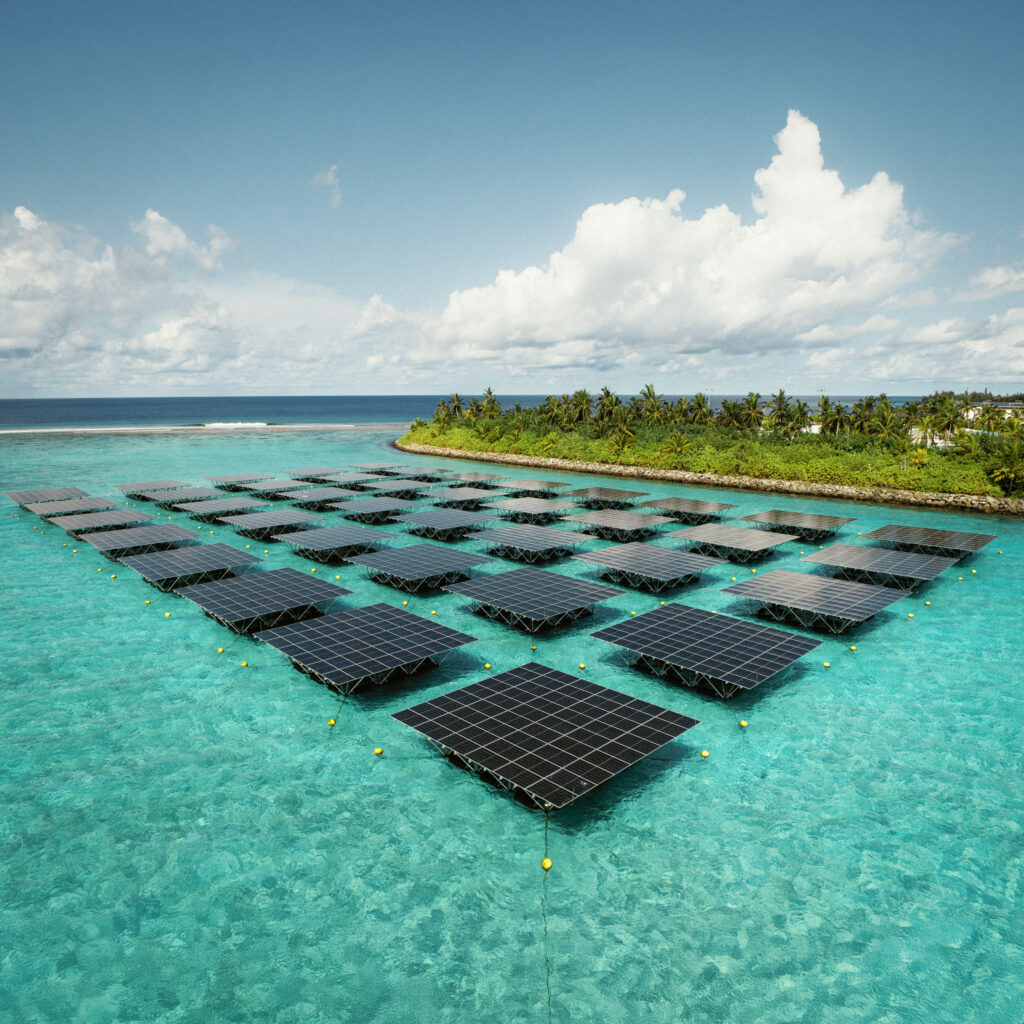 The Ritz-Carlton Maldives has installed solar coverage across all 61 ocean villas and back-of-house facilities, bringing its total capacity to 983 kWp. The property achieved Green Globe Certification and Forbes Verified Responsible Hospitality recognition in 2024 for meeting over 100 environmental and social responsibility standards.
The Ritz-Carlton Maldives has installed solar coverage across all 61 ocean villas and back-of-house facilities, bringing its total capacity to 983 kWp. The property achieved Green Globe Certification and Forbes Verified Responsible Hospitality recognition in 2024 for meeting over 100 environmental and social responsibility standards.
"Through our continued commitment to sustainability, we take another powerful step toward a healthier, more sustainable world with the completion of our solar installations," says Anthony Gill, general manager of Patina Maldives. "With each renewable energy milestone, we are not only safeguarding the Maldives' extraordinary beauty - we are setting a bold example of what's possible when we unite for the well-being of our planet and its future."
Fari Islands was designed from inception with sustainability principles, utilising mass engineered timber construction that reduced carbon emissions by over 6,000 tons during production and transportation. Unlike traditional Maldivian thatched roofs, the destination features flat-roof architecture specifically designed to accommodate solar panel installations.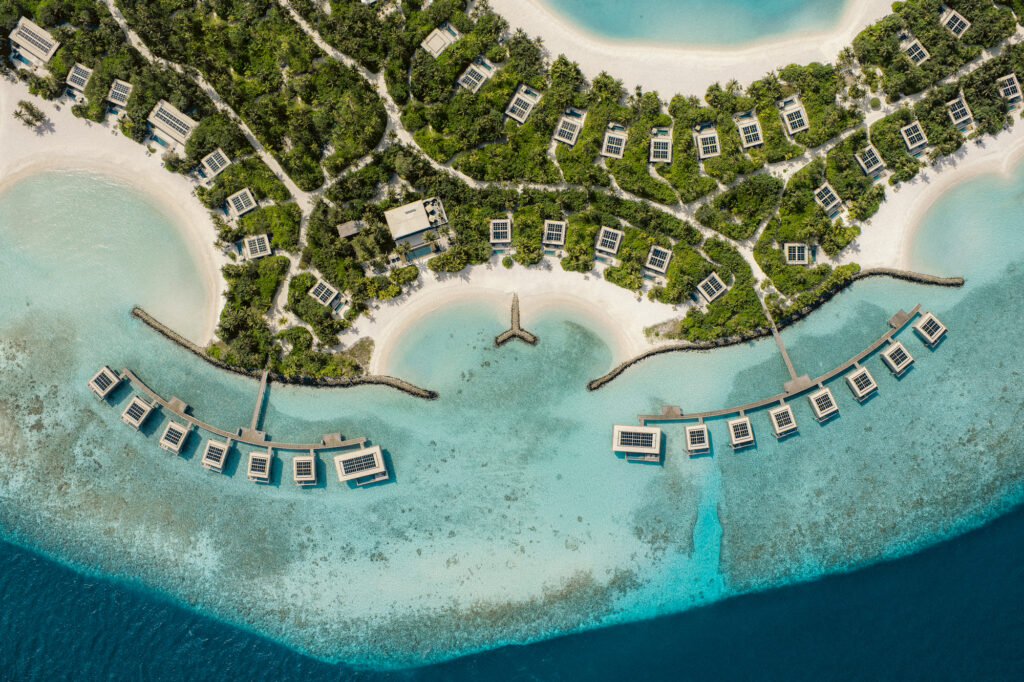 All resort villas were prefabricated to minimise runoff into the marine ecosystem, while the extensive use of offsite manufacturing technology makes it the largest hospitality project globally to benefit from such sustainable construction methods.
All resort villas were prefabricated to minimise runoff into the marine ecosystem, while the extensive use of offsite manufacturing technology makes it the largest hospitality project globally to benefit from such sustainable construction methods.
David Tsang, chief executive of developer Pontiac Land Group, says the renewable energy expansion represents "a significant milestone in our sustainability journey". He adds: "By embracing renewable energy, we are taking tangible steps to reduce our carbon footprint, advance our environmental goals, and support sustainability progress in the hospitality and tourism sectors."
The floating solar installation is scheduled for completion in the final quarter of 2025, including associated battery storage facilities. Swimsol, the Maldives' leading solar provider and pioneer in marine floating solar development, is overseeing the technical implementation across all properties.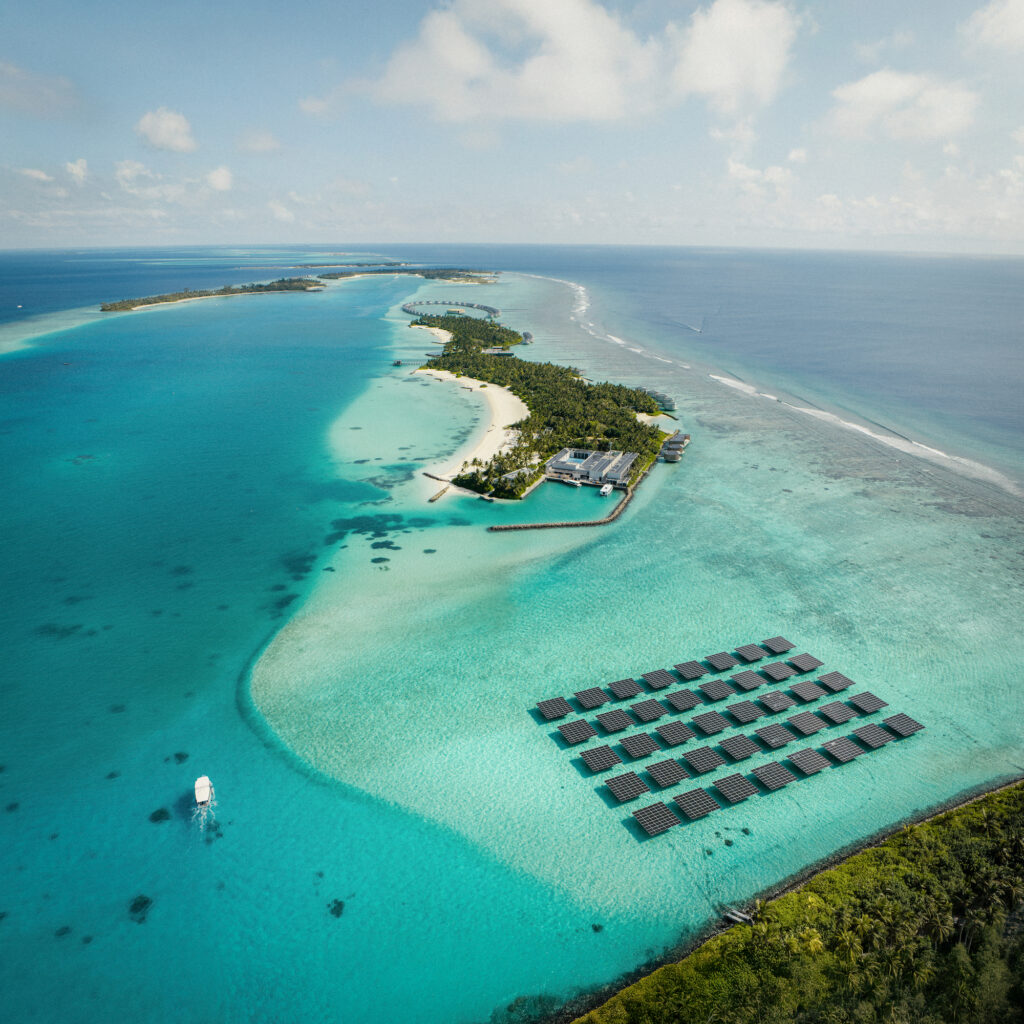 The project demonstrates how luxury tourism can adapt to environmental challenges in climate-vulnerable destinations, with the Maldives facing significant threats from rising sea levels. The archipelago's approach combines cutting-edge renewable technology with sustainable architecture to create a model for responsible resort development in tropical regions.
The project demonstrates how luxury tourism can adapt to environmental challenges in climate-vulnerable destinations, with the Maldives facing significant threats from rising sea levels. The archipelago's approach combines cutting-edge renewable technology with sustainable architecture to create a model for responsible resort development in tropical regions.
The Fari Islands community, which opened in 2021, continues working toward its net zero vision while maintaining world-class hospitality standards across its multi-brand destination that includes staff accommodation and educational facilities alongside guest resorts.





